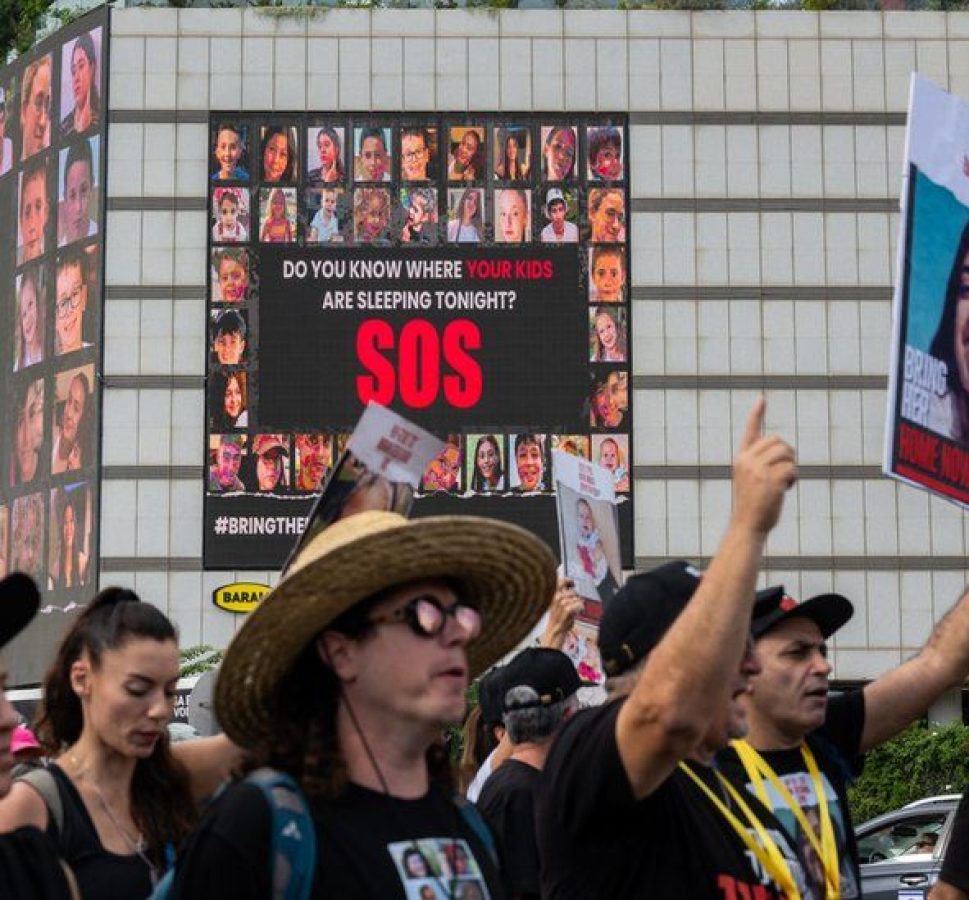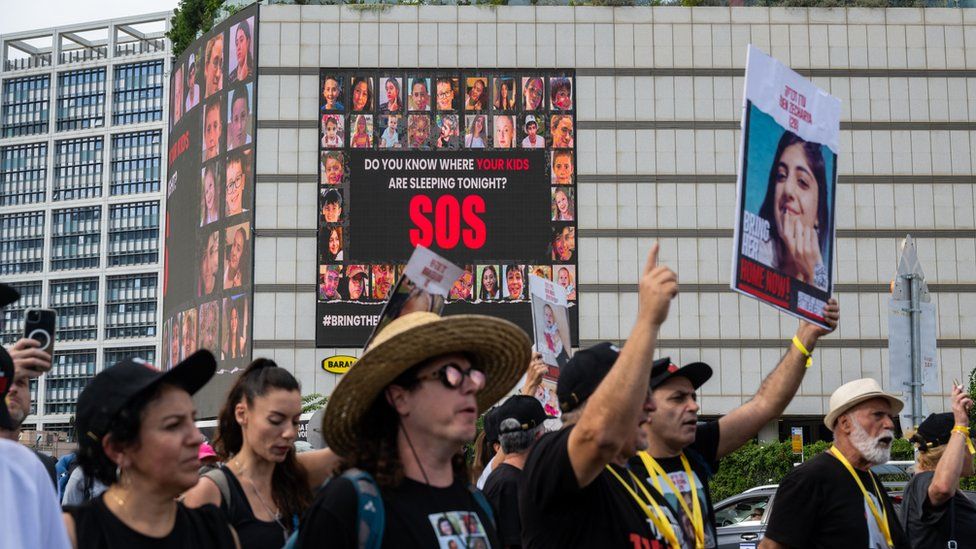
Their smiling faces look down from the sides of skyscrapers, walls between Tel Aviv’s restaurants and bars and a giant video screen at a shopping mall entrance.
More than 240 hostages were snatched at gunpoint on 7 October from their homes or workplaces next to the Gaza Strip, from military bases and a big outdoor dance party.
They included some 30 children, the youngest just nine months old. But since Hamas gunmen spirited them away to Gaza, the fates of most remain unknown.
For Israelis reeling from last month’s bloody massacres, it is an ongoing trauma.
“This is the last photo we have of my aunt. She was taken on a motorcycle by two terrorists,” says Eyal Nouri, showing me a picture of Amina Moshe, 72, being driven away from Nir Oz, a kibbutz where she lived for 50 years.
“No children, no babies, no older women are meant to be part of any conflict. It’s something against humanity to kidnap children.”
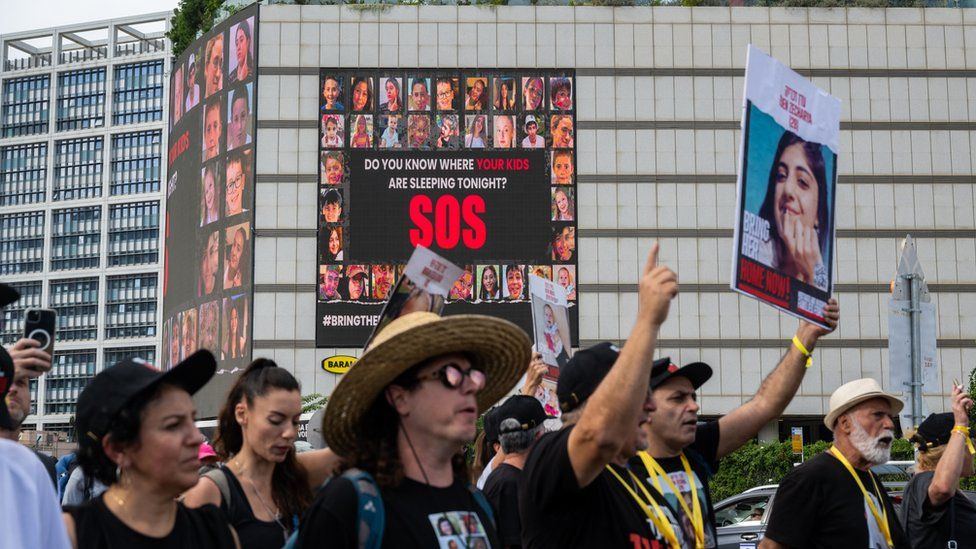
Although this is the biggest, over the years, Israel has endured many hostage crises.
During the 1980s, the country showed it was ready to pay high prices for its citizens in prisoner swaps with Palestinian and Lebanese armed groups. Sheikh Ahmad Yassin, who later founded Hamas, was freed in one exchange.
Even Israeli soldiers’ corpses were traded to give them proper Jewish burials.
Then in 2006, Hamas kidnapped a soldier, 19-year-old Gilad Shalit, in a cross-border raid. His father, Noam, led a painful five-year campaign to bring him home, stressing the “unwritten contract” between the state and its conscripts.
Benjamin Netanyahu, the prime minister – then as now – signed off on the biggest ever prisoner exchange for a single soldier. More than a thousand inmates were released including Yahya Sinwar, who went on to lead Hamas in Gaza, and apparently masterminded the 7 October attacks.
A key figure involved in the Shalit deal sees major differences between the circumstances then and now which he thinks will prevent any comprehensive deal being done.
“We had five years and four months to build trust with Gilad Shalit. [Now], we have days. The future of the hostages will be decided in the coming days,” says Gershon Baskin, an Israeli peace activist, who led secret backchannel talks with Hamas.
What Hamas did, they crossed the line… it’s inconceivable that they will continue to be in power in Gaza after this war is overGershon Baskin
Israeli peace activist
The main complication this time, he says, is the scale of atrocities. “What Hamas did, they crossed the line, where it’s inconceivable that they will continue to be in power in Gaza after this war is over,” Mr Baskin says.
“So, there’s some kind of built in contradiction to trying to negotiate with the people that you intend on killing.”
Early on, Qatar did broker the release of an American Israeli mother and daughter and Egypt helped bring out two older Israeli women hostages. However, no bigger agreement has since taken shape.
This week, the military wing of Hamas said it was ready to free up to 70 women and children held in Gaza in exchange for a five-day ceasefire.
Speaking to the US network, NBC on Sunday, Mr Netanyahu raised the possibility of a deal. The US President Joe Biden has since said he is engaged in daily discussion to secure the release of the hostages and believes it will happen.
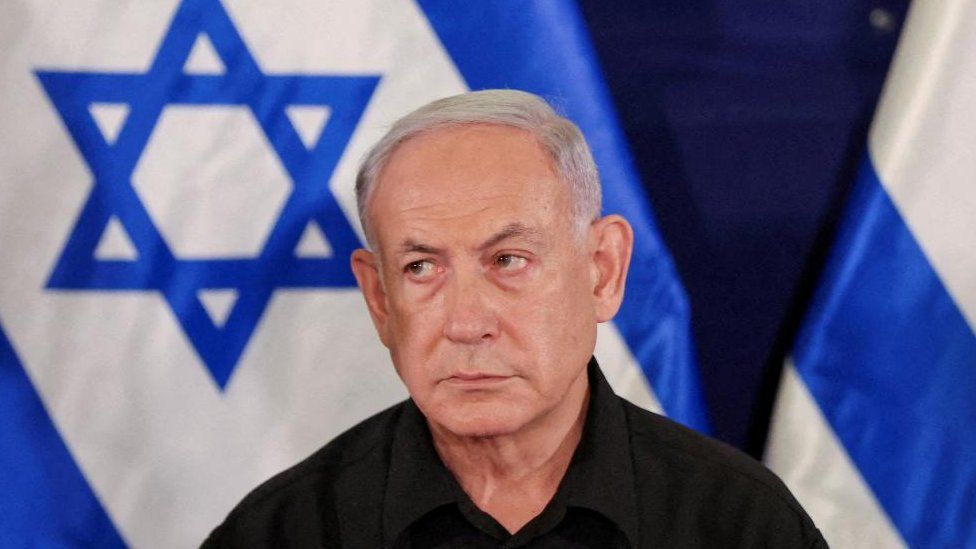
However, publicly, Israel has rejected a ceasefire, arguing that Hamas would use it to regroup. It has said it could agree to shorter humanitarian pauses in hostilities.
Polls suggest that position is supported by many Israelis. In the latest survey by the Israeli Democracy Institute, the most common response – from 38% of people – was that Israel should negotiate a prisoner deal but continue fighting. Overall, 70% of respondents did not think the war should stop.
“In return for the hostages they are ready to give Palestinian prisoners. But the popular view is to say: “don’t stop the fighting,”” says Professor Tamar Hartmann who conducted the poll.
“It’s because the cost of stopping the fighting right now might be greater in terms of people’s lives, if we stop and the aims of the war will not be achieved.”
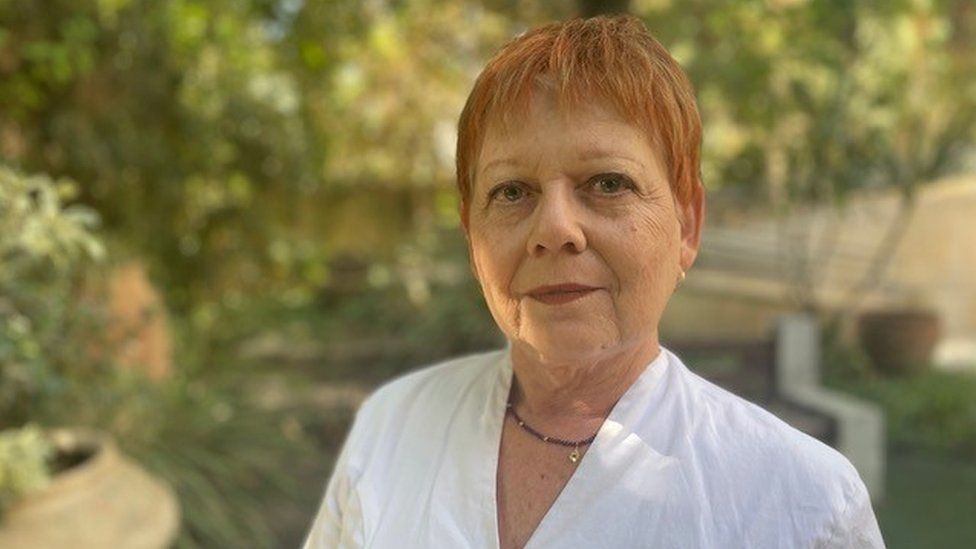
A persistent small group of those polled – about a fifth – refuse any deal making with Hamas. Many Israelis point out how in the past, prisoners – like Yahya Sinwar – who already had blood on their hands were released and went on to plot further deadly attacks.
With the odds against them, families and supporters of the hostages are coming up with creative ways of raising public pressure.
A huge art installation filling HaBima Square in Tel Aviv features an empty bed for every adult, child and couple missing in Gaza.
Every Friday on the Jewish sabbath, relatives gather in what is now known as Hostages Square outside the Museum of Art. They set up a giant table with places set for every person missing.

On Tuesday, a large crowd began a 40 mile (63 km) march from Tel Aviv to the prime minister’s office in Jerusalem to urge their government to take action.
With each passing day, fears grow for the hostages. Hamas says several dozen have already been killed in Israeli air strikes.
Past experience has taught Israelis that deals can be done but now the intensity of the ongoing war brings a new level of urgency.




